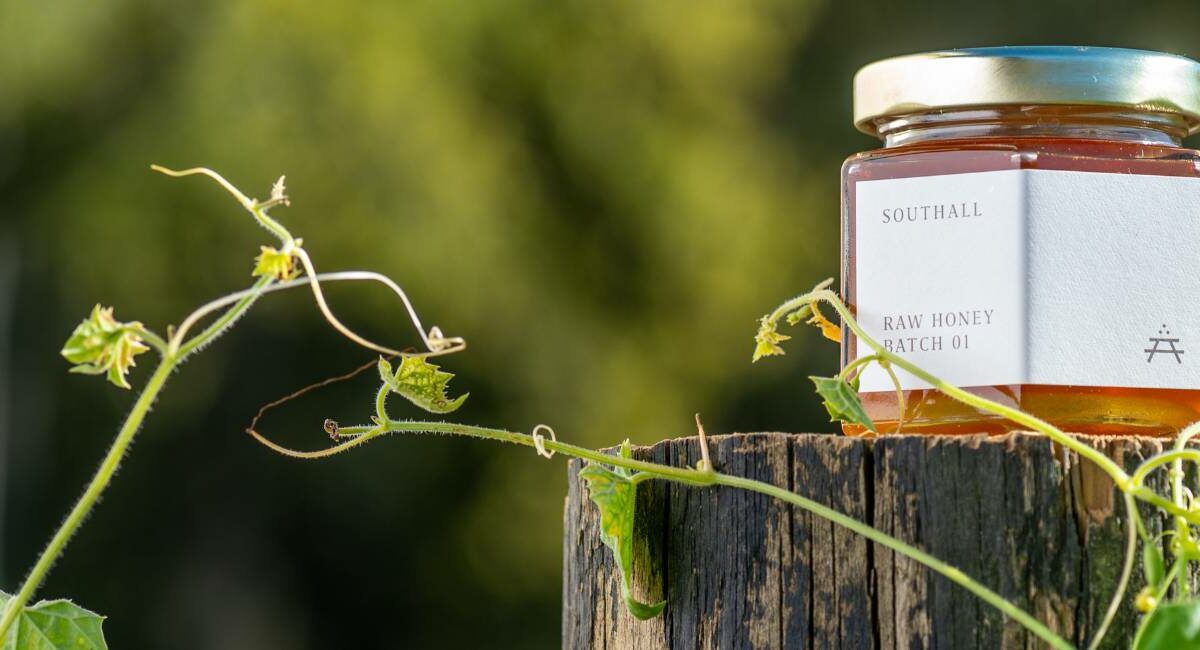Hive mind takes on whole new meaning at a place like Quebec’s charming Manoir Hovey, a five-star lakefront resort amid the woods. There, under the tutelage of apiculture specialist Jérôme Dubois, a sommelier and beekeeper, you’ll explore the Relais & Chateaux resort’s prodigious apiary and learn how wine and bees (and their honey) share characteristics, such as the way the terroir impacts the product and how sustainable practices make a difference. After a 90-minute crash course in beekeeping, beeline into the field dressed in protective gear for hands-on beekeeping activities. Experience the hives,taste honey directly from the comb, sip a honey-based cocktail, and receive a gift bag chock full of Dubois’ homemade, honey-glazed granola.

With hives built and maintained rooftop at urban resorts, and hotel apiaries wedged into woods among farmland, on mountain slopes, seaside, or amid jungle scape, hotel-managed beekeeping isn’t just a trend that results in cleaner honey to smear on your breakfast toast. Beyond providing that waxy, gooey comb positioned alongside house-baked bread on an eye-popping buffet, on-site hives prove a hotel’s commitment to sustainability, manifest a connection to the earth in a bee-to-plate kind of way, help counter the dwindling bee population (challenged by myriad factors from parasites to pesticides), and boost pollination — thus improving and enhancing the world’s food supply.
So slurp up hyper local honey in a cocktail (or tea), dip into it as dessert, nibble it swirled on pastries, partake of it as an ingredient in a curative spa treatment, or admire it as the wax that shines up your suite’s furniture.
A few of our favorite bee-friendly resorts:
Carmel Valley Ranch

Part of the Unbound Collection by Hyatt, Carmel Valley Ranch exudes that year-round, summer-camp allure. Tucked into 50 undeveloped acres near Big Sur along California’s Central Coast, the resort thrives on a back-to-nature ethos that connects guests to the local landscape in myriad ways. With its own vineyard and organic garden, not to mention a menagerie of goats, chickens, and horses, the ranch also provides a home to a swarm of Italian bees. Learn about them in a range of courses, such as A Bee’s Life, meant to celebrate the tiny artisans.
Shangri-La Toronto

The tony Shangri-La Toronto, one of the Eclectic City’s tallest buildings, ascends nearly to the clouds. Like a crown, a B-Wall (designed by Birks, Canada’s leading jeweler and maintained by Montreal-based bee experts Alvéole), holds approximately 50,000 bees that produce roughly 45 pounds of honey a year. Raw, unpasteurized, and salubrious, the honey serves as key ingredients in the hotel’s custom cocktails, gourmet dishes, and craft beer.
Southall Farm & Inn

Near Nashville, bucolic rural Tennessee unfurls in a blissful reverie of small towns, music venues, and horse farms. Just outside picturesque Franklin, Southall, a working farm and luxury eco-resort, reunites city-weary travelers with their earth-craving souls. On 325 lovingly harvested acres, the farm dedicates itself to sustainability with heritage crops, hydroponic gardens, an apple orchard, and seven apiaries woven into the side of a woody slope. Overseeing millions of bees of various species in a property-wide pollination program, Southall’s Pollination Program Manager Jay Williams leads guided apiary tours for guests. Don’t miss a taste of the farm’s supreme honey in cocktails, seed-to-plate dishes, and at the spa.
Grand Velas Riviera Maya

A new bee sanctuary at jungle-edged Grand Velas Riviera Maya protects the indigenous, stingless, Melipona Bee, considered sacred to the Mayans. Happily, the sanctum also feeds the passions of renowned Chef Nahum Velasco (of topnotch resort restaurant Cocina de Autor), who is obsessed with pre-Hispanic beekeeping traditions. Meet the bees on the resort’s weekly eco-tour to the organic orchard to learn about their tendency to harvest the blooms of medicinal plants.The grand finale? A honey and local cheese tasting, accompanied by the chef’s house-made mead.
The Brando

Ahead of his time, Marlon Brando envisioned Tetiaroa, his personal atoll, as a sustainable retreat. To wit, he installed French Polynesia’s first beehives in the 1980s, laying the groundwork that would become The Brando, an upscale paragon of green tourism. Replete with eco elements such as an innovative air conditioning system that pumps cold water from the depths of the sea, the tropical haven now has nearly 100 beehives on the atoll, spread across three different motus. Try the bee’s bounty the way Marlon liked it . . . as part of ‘Dirty Old Bob,’ The Brando’s top-selling cocktail.
Ballyfin

Enchanting Ballyfin, a five-star country house hotel in Ireland’s verdant County Laois, nestles in the palm of the Sieve Bloom Mountains’ foothills. On a lake, lording over 614 folly, grotto, and garden-flecked acres, the lavish estate transports guests to another era. Ballyfin even offers a trunk of costumes to borrow to complete the fantasy. Apropos to the mise-en-scene, Ballyfin boasts approximately 20 hives, tended by a local beekeeper. Producing enough honey to serve the hotel year round, the bees create three types of fine Irish honey – ivy, spring, and rapeseed – each with unique qualities and flavors. Attune to every detail, staff use the honeycomb’s wax to make the wax seals that are placed on the evening dinner menus for guests.
The Broadmoor

At Colorado Springs’ grand dame The Broadmoor, more than 50 beehives buzz contentedly at the resort’s Eagles Nest ranch, along with some additional hives located at Broadmoor Farms and golf course. The bees pollinate the resort’s vast floral gardens as well as produce more than 1,500 pounds of honey annually. Much appreciated by the kitchen and guests alike, the honey can be sampled in a plethora of dishes across The Broadmoor — such as room service’s popular cheese & charcuterie board drizzled with Eagle’s Nest Ranch honey.
Featured image courtesy of Southall.
(Travel Curator may earn a commission from booking links on this page).







